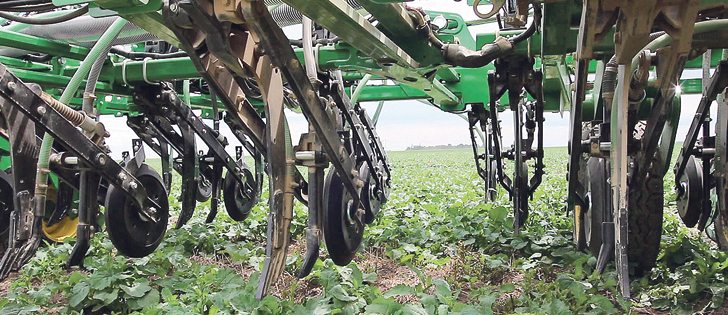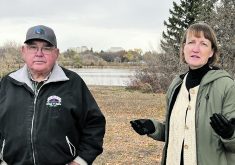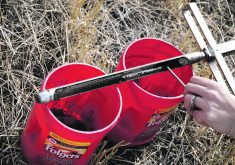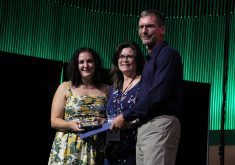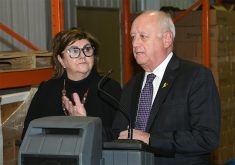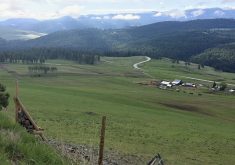Saskatchewan farmers claim that they already follow good nutrient management practices, but a memorandum of co-operation between the province and Fertilizer Canada will ensure that more people know that.
Provincial Agriculture Minister Lyle Stewart signed the agreement with the organization, which represents manufacturers, wholesalers and retailers and their efforts to promote sustainable fertilizer use through the 4R stewardship program.
The government will help create awareness of 4R.
The program was developed in Canada and is recognized for its emphasis on the right source at the right rate, right time and right place.
Read Also

Manitoba farmers fight sprouted wheat after rain
Rain in mid-September has led to wheat sprouting problems in some Manitoba farm fields.
“Our producers are largely already doing this, but some of them might not realize it’s the 4R protocol,” Stewart said.
“The 4R protocol is becoming recognized around the world as an environmentally friendly way to use fertilizer products, and so we want our producers to be associated with that as another way of telling our positive story in agriculture.”
Designation under the protocol involves best management practices and certification by an agronomist.
Fertilizer Canada chair Kathy Jordison of Yara Canada said collecting the information allows farmers and the industry to say they are doing the job and doing it well.
“4R was created in Canada,” she said. “It’s now an international phenomenon, and it’s about time we captured it and started doing stuff in Canada that goes to the bottom line of our environment and our farmers, too,” she said.
Chief executive officer Garth Whyte said the organization’s goal is to have 20 million acres in Canada designated by 2020. Currently 2.1 million acres have been certified.
Other provinces that have signed agreements are Alberta, Manitoba, Ontario, New Brunswick and Prince Edward Island.
Whyte said the 4R program fits with current concerns about greenhouse gas emissions.
“Governments are always pushing on targets restricting emissions,” he said.
“We’re looking at a target of actually fixing the problem.”
Fertilizer Canada also has a nitrous oxide emissions reduction protocol that it recently presented at the Conference of Parties on Climate Change in Marrakesh, Morocco. Whyte said it can reduce nitrous oxide emissions by 25 percent.
Fertilizer application becomes increasingly important as the world requires more food. Applying it properly is critical, even if it means using less, said Jordison.
She said farmers can grow more product and become more financially secure, which in the long run helps both the fertilizer business and the environment.
“In Saskatchewan in particular, our farmers are highly advanced in their technology and what they do and how they apply fertilizer, how they plant their crop,” she added.
“Nobody knows about it because we’re so good at keeping it to ourselves and doing it right. This is a very positive industry.”


